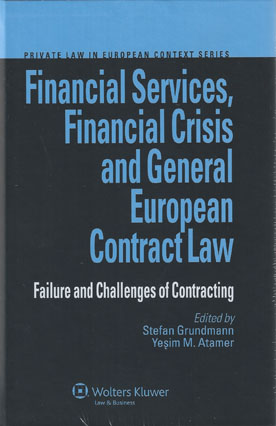
Speculation is rife on the origins of the worldwide financial crisis of 2008, with a preponderance focusing on alleged shortcomings in corporate governance. This book offers a distinct yet complementary perspective: that the most useful path to follow, if we want to understand what happened and forestall its happening again, is through an analysis of contract relationships – specifically, banking contracts entered into in the financial services sector, considered under the rubric of contract law rather than company law. Because banking is the area of European contract law which is most thoroughly developed, banking contracts can be seen as paradigmatic of typical assumptions and shortcomings often examined in the more general debate on contract law. And indeed, the very thoroughness of European banking contract law makes it a promising ground on which to build effective preventive measures. In this book thirteen noted scholars, recognizing that modern contract law must take into account global markets and risks, consider banking contracts within networks and within mass transactions. Always attending to the long-term relationships that characterize financial services contracts, they focus on such cross-sector issues as the following:
The authors analyse the full body of second generation European Banking Contract Law and show convincingly that the world financial crisis has proceeded at least as much from contracting as from corporate governance. This vantage point promises to open new ways to approach this most crucial of contemporary problems, and will be of great interest to all professionals examining the role played by financial services in market crises.
This book is based on the tenth annual conference of the Society of European Contract Law (SECOLA) which took place in Istanbul in June 2010.